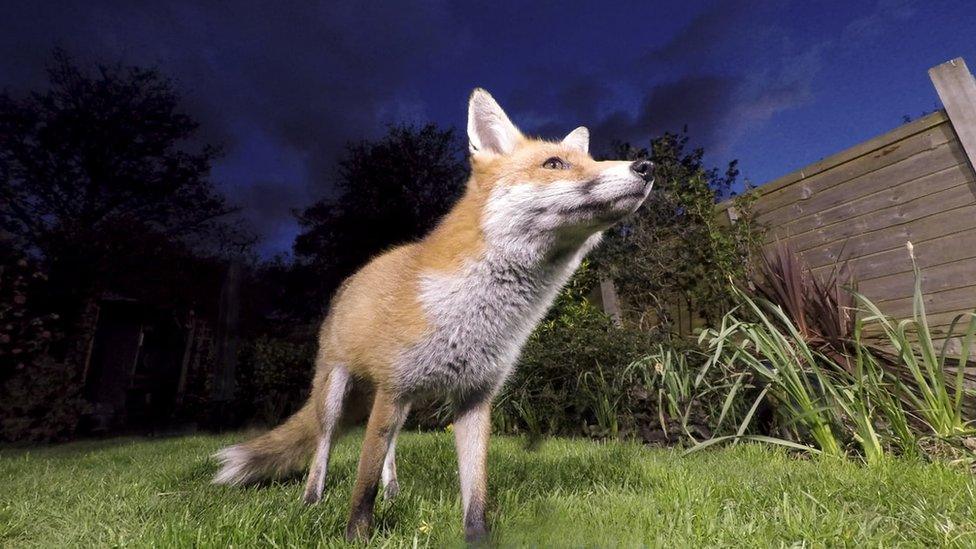Urban foxes 'more like domesticated dogs'
- Published

Many cities across the UK now have established fox populations
Urban red foxes are diverging from their country cousins, becoming more similar to domesticated dogs, according to researchers.
A study found urban foxes had smaller brains and were developing a different snout shape, better adapted for urban foraging.
The team, led by the University of Glasgow, stressed that urban foxes remained far from domesticated.
But they said the changes mirrored the way dogs and cats became domestic pets.
Many cities throughout the UK now have established fox populations, with the animals often showing little fear of humans.
A video shared widely on social media at the weekend showed a fox fearlessly approaching new mother Jessika Toward, who was enjoying a picnic in the grounds of an Aberdeen maternity hospital, helping itself to a sandwich wrapper and rolling on the picnic rug.
Researchers say urban foxes are becoming more similar to domesticated dogs
Dr Kevin Parsons, of the University of Glasgow's Institute of Biodiversity, Animal Health and Comparative Medicine, who led the study, suggests urban foxes do not need the mental agility to catch the variety of live prey they feed on in the country.
But a shorter snout with a stronger bite could be handy to get at and devour suburban leftovers.
Cats and dogs
"We assessed skulls from hundreds of foxes found within London and the surrounding countryside and saw that urban foxes had a smaller brain size capacity but also a different snout shape that would help them forage within urban habitats," said Dr Parsons.
"There was also less of a difference between males and females in urban foxes," said Dr Parsons.
Study co-author Dr Andrew Kitchener from National Museums Scotland said the findings shed light on how dogs and cats become domesticated.
He said: "Some of the basic environmental aspects that may have occurred during the initial phases of domestication for our current pets, like dogs and cats, were probably similar to the conditions in which our urban foxes and other urban animals are living today.
"So, adapting to life around humans actually primes some animals for domestication."
The team's research paper is published, external in the Proceedings of the Royal Society Series B.